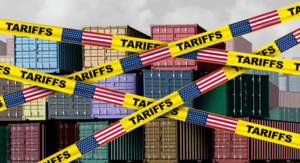
Food security and development in Africa
Food security and development in Africa stand as vital cornerstones for the continent’s sustainable progression. Despite this significance, the continent grapples with enduring hurdles in securing ample nutrition for its people.
Tackling these challenges becomes pivotal in nurturing growth, stability, and affluence throughout Africa. Ensuring food security and development remains integral for fostering stability and prosperity, addressing food shortages, and bolstering access to nutrition across the continent.
Food Security and Development in Africa
Food security and development in Africa intertwine as essential elements pivotal for societal progress. The synergy between Food Security and Development forms the bedrock of sustainable growth, especially in regions facing persistent challenges.
Addressing these inseparable facets is imperative for fostering stability, prosperity, and holistic advancement, particularly within African nations. The symbiotic relationship between Food Security and Development underscores their vital role in shaping a flourishing society.
To illuminate this critical juncture of food security and development, five key points emerge, underscoring the intricate interplay between these pivotal aspects in the continent’s narrative of progress.
Table of Contents
1. Persistent Challenges in Food Security
Africa faces myriad obstacles affecting food security, including climate-driven droughts, limited infrastructure, unsustainable farming methods, and social and economic inequalities. The Food and Agriculture Organization reports 239 million undernourished individuals in sub-Saharan Africa in 2020, emphasizing the gravity of the situation, which directly impacts food security and development in Africa.
These challenges intertwine, intensifying hunger, hampering sustainable development and raising global economic instability. Addressing these issues demands holistic solutions, incorporating resilient agricultural practices, infrastructural enhancements, and equitable socio-economic policies. Tackling these multifaceted challenges is crucial not only for ensuring food security but also for fostering sustainable growth and improving the lives of millions across the continent.
2. Agricultural Innovation and Technology
Integrating technology into agriculture is key to addressing global food challenges and improving food access worldwide. This includes approaches like precision farming, resilient crops, and advanced farming methods, all of which contribute to boosting agricultural output. Moreover, digital tools and mobile apps provide vital data on markets, weather, and finances, empowering farmers to make informed choices.
According to the African Development Bank, leveraging innovation and tech in agriculture could potentially elevate productivity by 20-30% in a short span. This progress is especially critical in regions like Africa, where food security and development remain pressing concerns. Embracing these advancements offers a pathway to ensure sustainable farming practices and improve food access globally, particularly in addressing food security and development in Africa.
3. Policy Reforms and Investments
Governments and global bodies must prioritize agricultural advancement, funneling resources into research, infrastructure, and skill enhancement initiatives, particularly in ensuring food security and development in Africa. Funding irrigation, storage, and transport networks can curtail post-harvest losses and enhance market accessibility.
United Nations Economic Commission for Africa findings underscore the transformative power: a mere 1% surge in agricultural productivity slashes poverty by 0.6-1.2%. Prioritizing these investments isn’t just about agriculture; it’s a pathway to alleviating poverty and nurturing sustainable growth, illustrating the pivotal role agriculture plays in shaping economies and improving livelihoods.
4. Empowering Smallholder Farmers
Smallholder farmers form a vital segment of Africa’s agricultural labor force. Empowering them via credit, education, and market access is pivotal for sustainable development. Strengthening cooperatives and imparting modern farming techniques can boost their productivity and earnings.
The International Fund for Agricultural Development (IFAD) emphasizes that empowering these farmers holds the key to poverty reduction and improved food security and development in Africa. By enabling smallholder farmers with resources and knowledge, we can pave the way for a more resilient agricultural sector, ensuring not just their prosperity but also contributing significantly to the overall welfare of communities and the continent’s sustainable growth.
5. Regional Collaboration and Trade
Enhancing food security and development in Africa necessitates robust collaboration among nations. Strengthening regional trade pacts is pivotal, enabling smoother agricultural produce flow across borders, securing a stable food chain. Fostering intra-regional trade environments reduces import reliance, fortifying resilient food systems.
The African Union’s CAADP underscores regional integration’s importance for bolstering food security and development, promoting agricultural investments, and bolstering trade infrastructure. This program champions a cohesive approach to empower African nations in jointly combating food insecurity, emphasizing collective efforts towards sustainable development and self-reliance within the agricultural sector.
Conclusion
Achieving food security and development in Africa necessitates a multi-faceted approach. By leveraging technology, implementing sound policies, empowering smallholder farmers, and fostering regional collaboration, Africa can surmount its food security challenges. The collective efforts of governments, international organizations, and local communities are pivotal in building a sustainable and resilient food system for the continent’s future.







